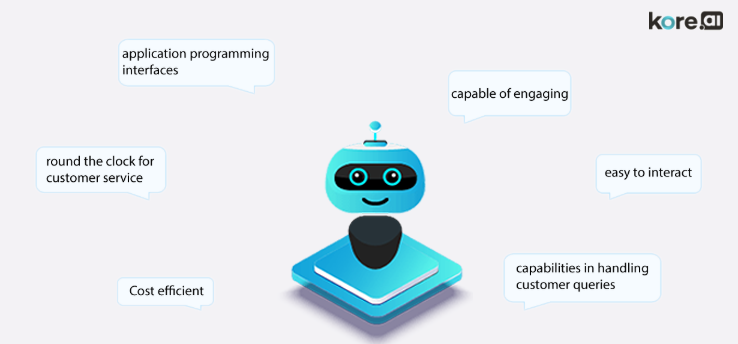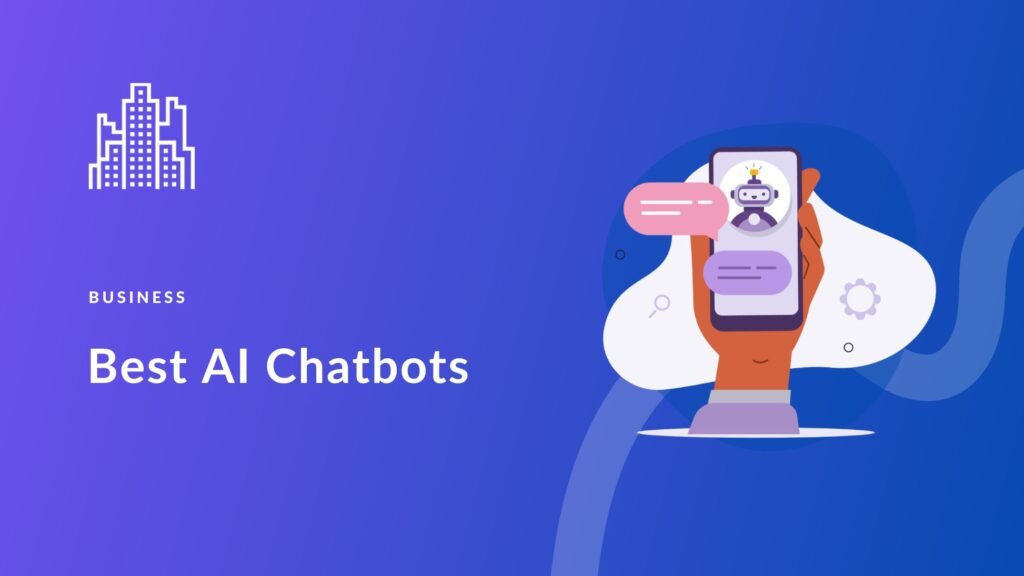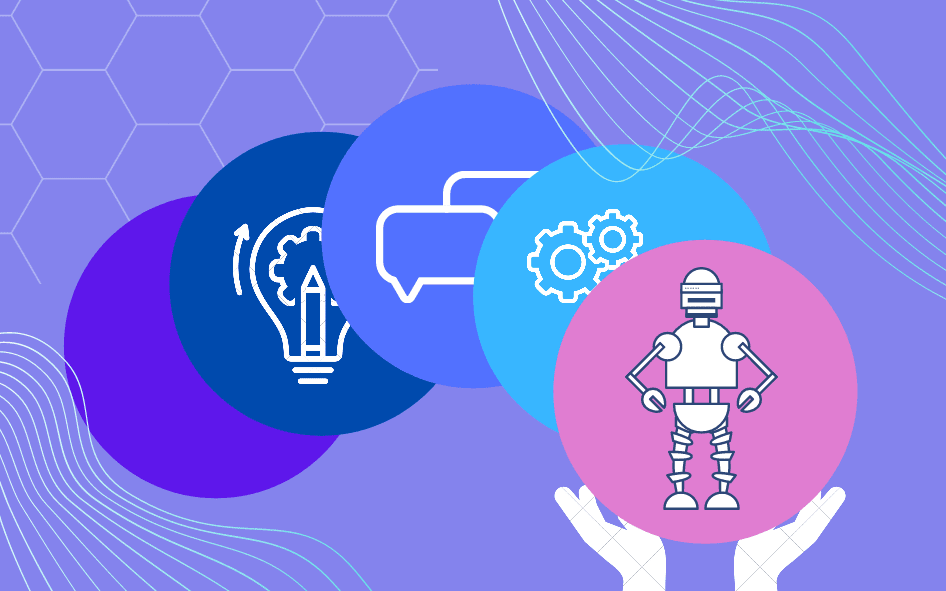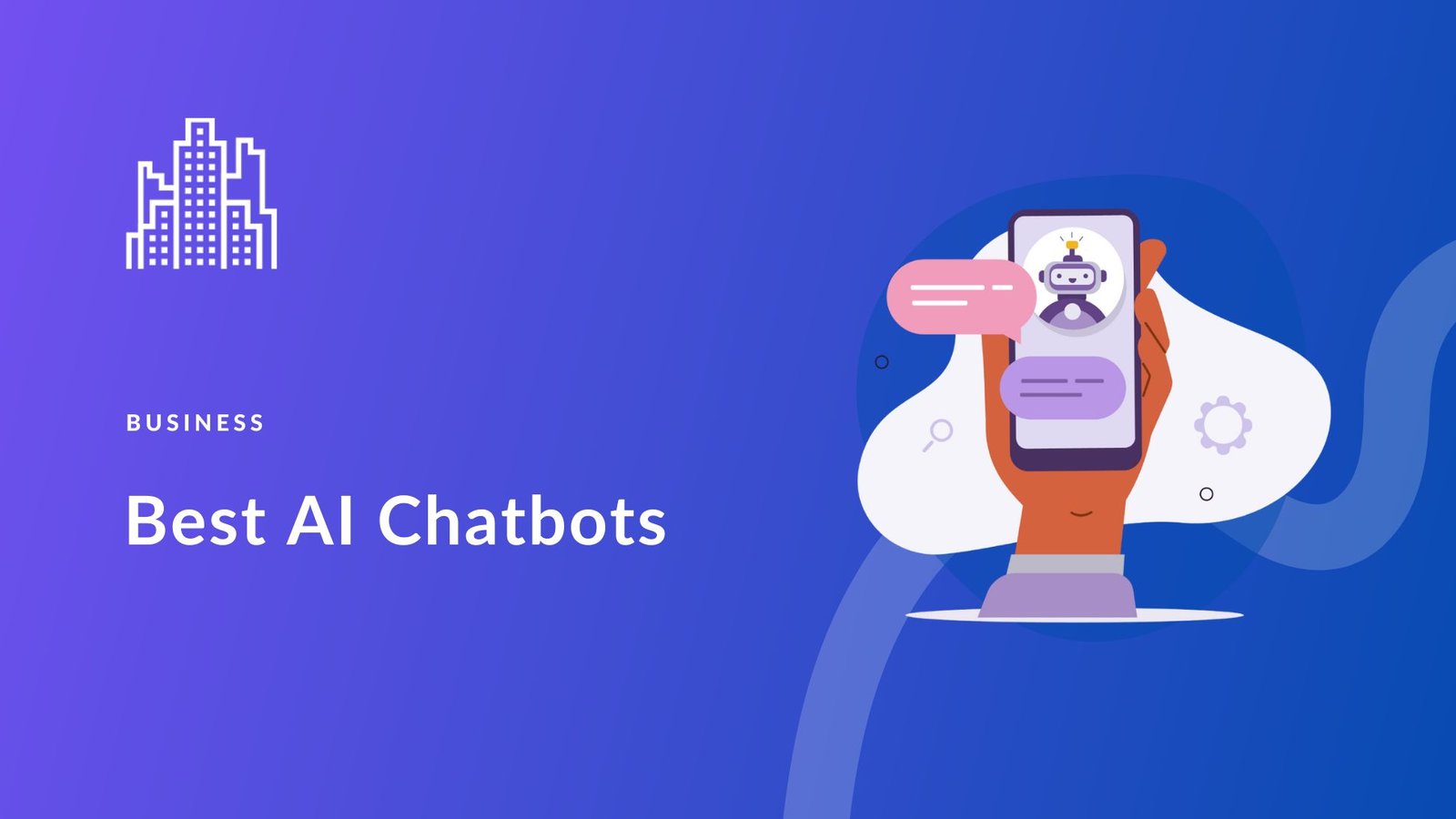Imagine a world where every message you receive is answered promptly, accurately, and with a touch of personalized charm. Thanks to artificial intelligence (AI), this dream is becoming a reality with the advancement of chatbot builder platforms. AI is revolutionizing the way we interact with chatbots, enhancing their abilities to understand and respond to human language, resulting in more efficient and satisfying conversations. In this article, we will explore the pivotal role that AI plays in improving chatbot builder platforms, enabling them to provide seamless and intelligent customer experiences.
Understanding Chatbot Builder Platforms
Definition of chatbot builder platforms
Chatbot builder platforms are software tools or platforms that enable businesses to easily create, customize, and deploy chatbots without extensive coding or technical knowledge. These platforms provide a user-friendly interface and pre-built templates, making it convenient for businesses to build and integrate chatbots into their websites, social media platforms, and messaging apps.
Importance of chatbot builder platforms in business
Chatbot builder platforms play a crucial role in modern businesses by serving as a bridge between the company and its customers. They offer several benefits, including cost-effectiveness, increased customer engagement, improved response time, and enhanced user experience. These platforms empower businesses to automate routine tasks, provide personalized support, and gather valuable insights from customer interactions.
Introduction to Artificial Intelligence (AI)
Definition and scope of AI
Artificial Intelligence (AI) refers to the simulation of human-like intelligence in machines, enabling them to perform tasks that typically require human intervention. AI involves the development of intelligent systems capable of learning, reasoning, and problem-solving. Its scope extends to various domains, including natural language processing, machine learning, computer vision, and robotics.
Evolution of AI in recent years
In recent years, AI has undergone significant advancements, revolutionizing industries across the globe. The integration of AI technologies, such as machine learning algorithms, neural networks, and deep learning, has enabled machines to process vast amounts of data, recognize patterns, and make informed decisions. This evolution has paved the way for the integration of AI in chatbot builder platforms, enhancing their capabilities and improving user experiences.

Integration of AI in Chatbot Builder Platforms
Benefits of integrating AI in chatbot builder platforms
The integration of AI in chatbot builder platforms brings numerous advantages for businesses. Firstly, AI enables chatbots to understand and respond to user queries more accurately and efficiently. Secondly, it allows for real-time data processing and analysis, enabling businesses to gather valuable insights and make data-driven decisions. Lastly, AI empowers chatbots with natural language processing (NLP) capabilities, enabling them to comprehend and respond to conversations in a more human-like manner.
Real-time data processing and analysis
chatbot builder platforms integrated with AI can process and analyze vast amounts of data in real-time. This allows businesses to gain real-time insights into customer behavior, preferences, and trends. By analyzing this data, businesses can make informed decisions, identify areas of improvement, and personalize the user experience.
Natural Language Processing (NLP) capabilities
AI-powered chatbot builder platforms leverage natural language processing (NLP) techniques to understand and interpret human language. NLP enables chatbots to comprehend context, recognize intent, and respond intelligently to user queries. This enhances the user experience by providing more accurate and relevant responses, leading to improved customer satisfaction and engagement.
Enhanced User Experience
Personalized interactions with users
AI integration in chatbot builder platforms enables chatbots to deliver personalized interactions with users. By analyzing user data and browsing history, chatbots can tailor their responses and recommendations according to the specific needs and preferences of each user. This personalized approach enhances user satisfaction, increases engagement, and fosters a sense of loyalty towards the brand.
Improved understanding and response to user queries
AI-powered chatbots have the ability to understand and respond to user queries in a more intelligent and accurate manner. Through the use of machine learning algorithms, chatbots continuously learn from past interactions, improving their knowledge base and ability to handle complex queries. This results in faster and more accurate responses, eliminating frustration and ensuring a seamless user experience.
Seamless integration with other communication channels
Chatbot builder platforms integrated with AI can seamlessly integrate with a wide range of communication channels, including websites, social media platforms, and messaging apps. This allows businesses to provide consistent support and personalized interactions across multiple channels, increasing convenience for users and enhancing their overall experience.

Efficient Chatbot Development
Automated chatbot training and learning
Incorporating AI into chatbot builder platforms enables automated training and learning for chatbots. AI algorithms automatically analyze and learn from user interactions, continuously improving the chatbot’s ability to understand and respond to user queries. This eliminates the need for manual training and coding, making chatbot development more efficient and cost-effective.
Intelligent chatbot responses
AI in chatbot builder platforms equips chatbots with intelligent response capabilities. Powered by machine learning algorithms, chatbots can generate contextually relevant and accurate responses in real-time. With AI, chatbots can also handle complex queries and provide users with informative and helpful answers, enhancing the overall user experience.
Lower coding requirements
Traditional chatbot development often requires extensive coding expertise. However, with the integration of AI in chatbot builder platforms, businesses can build chatbots with minimal coding requirements. The user-friendly interface and pre-built templates offered by these platforms enable businesses to create chatbots without the need for specialized coding knowledge, saving time and resources in the development process.
Chatbot Deployment and Maintenance
Streamlined deployment process
Chatbot builder platforms integrated with AI offer a streamlined deployment process, allowing businesses to quickly deploy chatbots across various platforms. These platforms provide easy integration with existing systems and websites, reducing the time and effort required for deployment. With AI, businesses can seamlessly integrate chatbots into their digital ecosystem, ensuring a smooth and efficient deployment process.
Continuous learning and improvement
AI-powered chatbot builder platforms enable continuous learning and improvement of chatbots. Through machine learning algorithms, chatbots analyze user interactions and continuously learn and adapt to user preferences and behavior. This iterative learning process allows chatbots to become more accurate, efficient, and personalized over time, ensuring a consistently improving user experience.
Predictive analytics for issue resolution
AI integration in chatbot builder platforms enables the use of predictive analytics for issue resolution. Chatbots can analyze and interpret user behavior and interactions, identifying potential issues or challenges before they arise. By proactively addressing user concerns and providing timely support, businesses can prevent customer dissatisfaction and improve overall satisfaction.

Increasing Accuracy and Efficiency
Enhanced ability to handle complex queries
AI-powered chatbot builder platforms enable chatbots to handle complex queries and provide accurate responses. With machine learning algorithms and natural language processing capabilities, chatbots can understand context, recognize intent, and provide relevant information even in complex conversations. This improves accuracy, reduces frustration, and enhances the user experience.
Reduction in response time
By leveraging AI, chatbot builder platforms can significantly reduce response time. AI-powered chatbots can understand and process user queries within seconds, providing instant and accurate responses. This eliminates the need for users to wait for human agents, resulting in faster and more efficient customer service.
Minimization of errors and inconsistencies
Integrating AI in chatbot builder platforms reduces errors and inconsistencies in chatbot responses. AI-powered chatbots analyze data, learn from past interactions, and continuously improve their knowledge base. This reduces the chances of providing incorrect or inconsistent information to users, ensuring a higher level of accuracy and reliability.
Advanced Analytical Capabilities
Analyzing user data for insights
AI-enabled chatbot builder platforms offer advanced analytical capabilities by analyzing user data. These platforms can identify patterns, trends, and customer preferences from the data generated through chatbot interactions. By analyzing this data, businesses can gain valuable insights into user behavior, preferences, and pain points, allowing for strategic decision-making and personalized experiences.
Generating actionable reports and metrics
Integration of AI in chatbot builder platforms enables the generation of actionable reports and metrics. These reports provide businesses with valuable insights into chatbot performance, user satisfaction, and engagement levels. By analyzing these metrics, businesses can make data-driven decisions to optimize chatbot performance, refine their strategies, and enhance the overall user experience.
Identifying and resolving user pain points
AI-powered chatbot builder platforms can help identify and resolve user pain points. By analyzing chatbot conversations and user feedback, businesses can identify common issues, challenges, and areas for improvement. This enables businesses to proactively address user concerns, enhance the user experience, and build stronger customer relationships.

Addressing Language and Cultural Barriers
Excellent multilingual support
AI integration in chatbot builder platforms enables excellent multilingual support. AI-powered chatbots can effectively communicate in various languages, breaking down language barriers and enabling businesses to cater to a diverse customer base. This enhances accessibility and inclusivity, ensuring that users from different linguistic backgrounds can receive support and engage with businesses seamlessly.
Cultural sensitivity and adaptability
AI-powered chatbot builder platforms can exhibit cultural sensitivity and adaptability. These chatbots can be trained to recognize and understand cultural nuances, ensuring appropriate and respectful interactions with users from different cultural backgrounds. By acknowledging and respecting cultural differences, businesses can foster positive customer experiences and build stronger connections with their global audience.
Accurate translation capabilities
Integrating AI into chatbot builder platforms enhances their translation capabilities. AI-powered chatbots can accurately translate text from one language to another in real-time, facilitating smooth and effective communication between businesses and users across different languages. This eliminates language barriers, improves accessibility, and expands businesses’ global reach.
Future Trends and Development
Machine Learning (ML) for chatbots
The future of chatbot builder platforms lies in the integration of machine learning (ML) techniques. ML algorithms enable chatbots to learn from user interactions, identify conversational patterns, and continuously improve their performance. With ML, chatbots can become more intelligent, understand user preferences, and provide highly personalized and contextually relevant responses.
Integration with voice assistants and smart devices
The integration of chatbot builder platforms with voice assistants and smart devices is a promising trend for the future. AI-powered chatbots can be connected to voice assistants like Amazon Alexa or Google Assistant, allowing users to interact with businesses seamlessly using voice commands. This integration extends the reach of chatbots and enhances the overall user experience by providing more convenient and hands-free interactions.
Chatbots with emotional intelligence
The development of chatbots with emotional intelligence is an exciting area of future development in chatbot builder platforms. AI technologies, such as sentiment analysis and emotional recognition, can enable chatbots to understand and respond to users’ emotions, providing empathetic and supportive interactions. This human-like emotional intelligence in chatbots will revolutionize customer support and engagement, fostering stronger connections between businesses and their customers.
In conclusion, AI plays a crucial role in improving chatbot builder platforms. The integration of AI enhances user experience, enables efficient chatbot development, streamlines deployment and maintenance processes, increases accuracy and efficiency, provides advanced analytical capabilities, addresses language and cultural barriers, and sets the stage for future trends and development. By leveraging the power of AI, businesses can create chatbot experiences that are personalized, intelligent, and capable of providing exceptional customer support.

